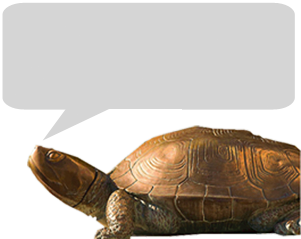New Cybersecurity Aptitude Assessment Arises from Research Developed at the University of Maryland
New Cybersecurity Aptitude Assessment Arises from Research Developed at the University of Maryland
A University of Maryland Information Sciences Invention of the Year, the Cyber Aptitude and Talent Assessment, has been launched by Haystack Solutions, a UMD startup. This new cybersecurity aptitude assessment helps to match professionals with vital roles in cybersecurity.
The University of Maryland Cyber Aptitude and Talent Assessment (CATA) was developed by an interdisciplinary UMD team of cognitive psychologists, psychometricians, and cybersecurity experts to identify the natural cognitive abilities of individuals in the cybersecurity field. CATA is the first such commercially available solution that is scientifically designed to identify the natural cognitive abilities of individuals who are entering cybersecurity or upgrading skills in the field.
Michael Bunting, Ph.D., Haystack’s CTO and a UMD research scientist, said: “CATA’s core has been used by the U.S. Intelligence Community and Department of Defense (DoD) to create some of the highest performing Cyber Teams.”
“It has been heartening to see it adapted for the commercial sector and, in early trials, to help identify previously unexplored but inherently genius-level cyber talent in schools and universities, who are now garnering some of the most prestigious CTF awards, and who had not previously considered cybersecurity careers,” said Bunting, a co-inventor of the technology.
CATA is designed to enhance online security by helping organizations identify the best candidates for cybersecurity jobs and tailor the training to the individuals they hire. The assessment is a set of cognitive tests using proprietary algorithms to provide a multidimensional assessment of an individual’s aptitude and a prediction of their ability to perform different cyber jobs. CATA was designed both to find people who have the cognitive skills to succeed in cyber and to steer people toward the type of cyber careers that fit them.
In UMD CATA research, performance-under-pressure testing of hundreds of DoD participants from SOCOM, U.S. Navy, West Point, and USAF, identified aptitudes in key areas associated with cybersecurity excellence such as critical thinking, exhaustiveness of approach and practices, initiating behaviors, real-time effectiveness, and responding behaviors. All tests minimized language bias and allowed participants to be competitive regardless of native language, English-speaking proficiency, or prior experience with IT and cybersecurity principles.
Haystack is licensed to use CATA by UM Ventures, a joint initiative bringing the University of Maryland, College Park and the University of Maryland, Baltimore together to commercialize discoveries, and create economic impact by engaging partners in industry and social ventures. Haystack also received $265K from the Maryland Innovation Initiative (MII) , a program applied for through UM Ventures.
“As the 10th Fleet Commander, I was compelled by the need for identifying and retaining our best talent,” said retired Vice Admiral Jan Tighe. “I wanted an Armed Services Vocational Aptitude Battery (ASVAB) standard assessment for Cyber. I thought if we can create an aptitude determiner to best align our computer network operations workforce with their optimal work roles, we would boost retention by putting team members in challenging, satisfying roles best suited to their interests and aptitude.”
“A tool like CATA would have saved our team countless hours by driving up retention, reducing retraining costs, and increasing mission effectiveness,” Tighe said.
Thus far, the aptitude assessment has been successfully used by the U.S. Intelligence Community and Department of Defense (DoD) as well as numerous schools and universities to build high performing cybersecurity teams.
In addition to Bunting, the UMD CATA invention team included: Susan G. Campbell, Jarrett Lee, Adam Liter; J. Isaiah Harbison, Alexa Romberg, Meredith Hughes, Valerie Karuzis, Polly O’Rourke, Gregory Colflesh, Lelyn Saner, John Romano, Sunhee Kim, Victoria Chang, Arlo Sumer, Alison Tseng, Jessica Young, Amber Bloomfield, William Burns, Nicholas Pandza; and Scott Jackson.
July 30, 2021
Prev Next
Connect
Did You Know

UMD is the only major public research university inside the Washington, DC beltway!!
